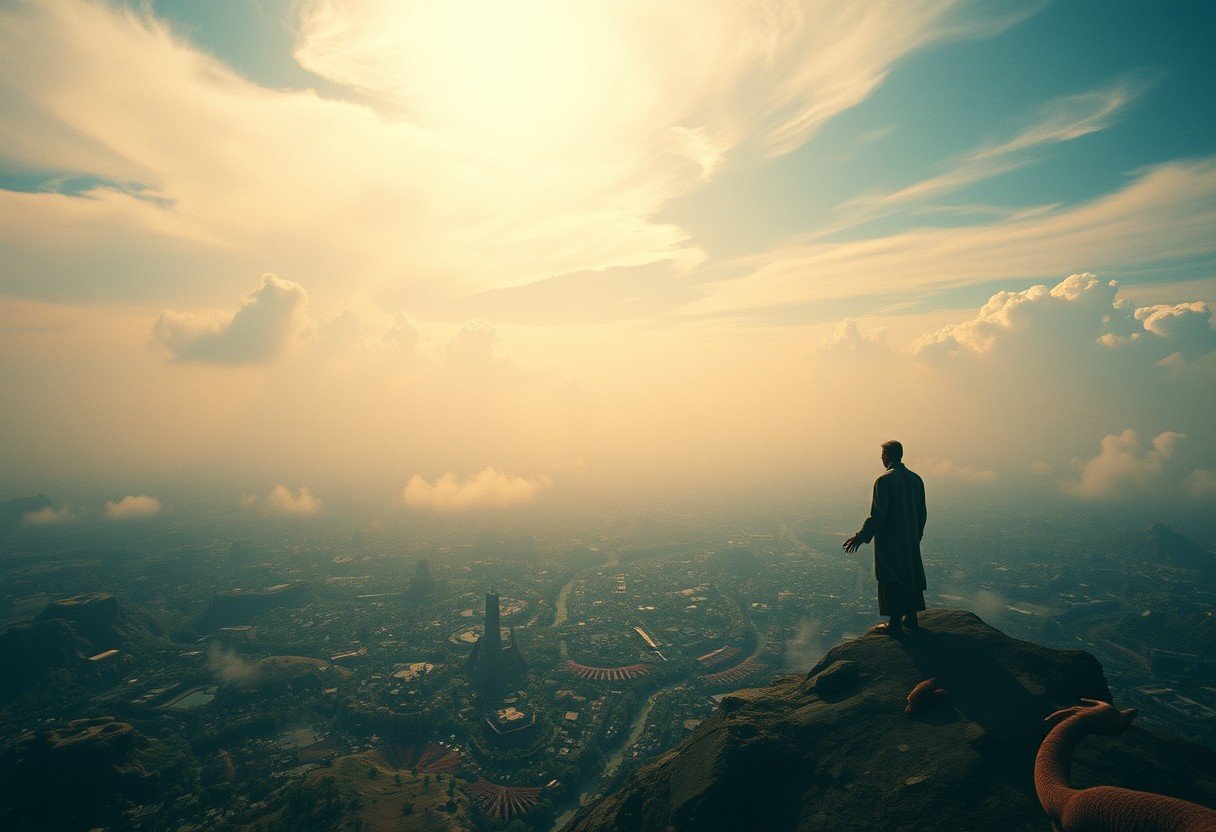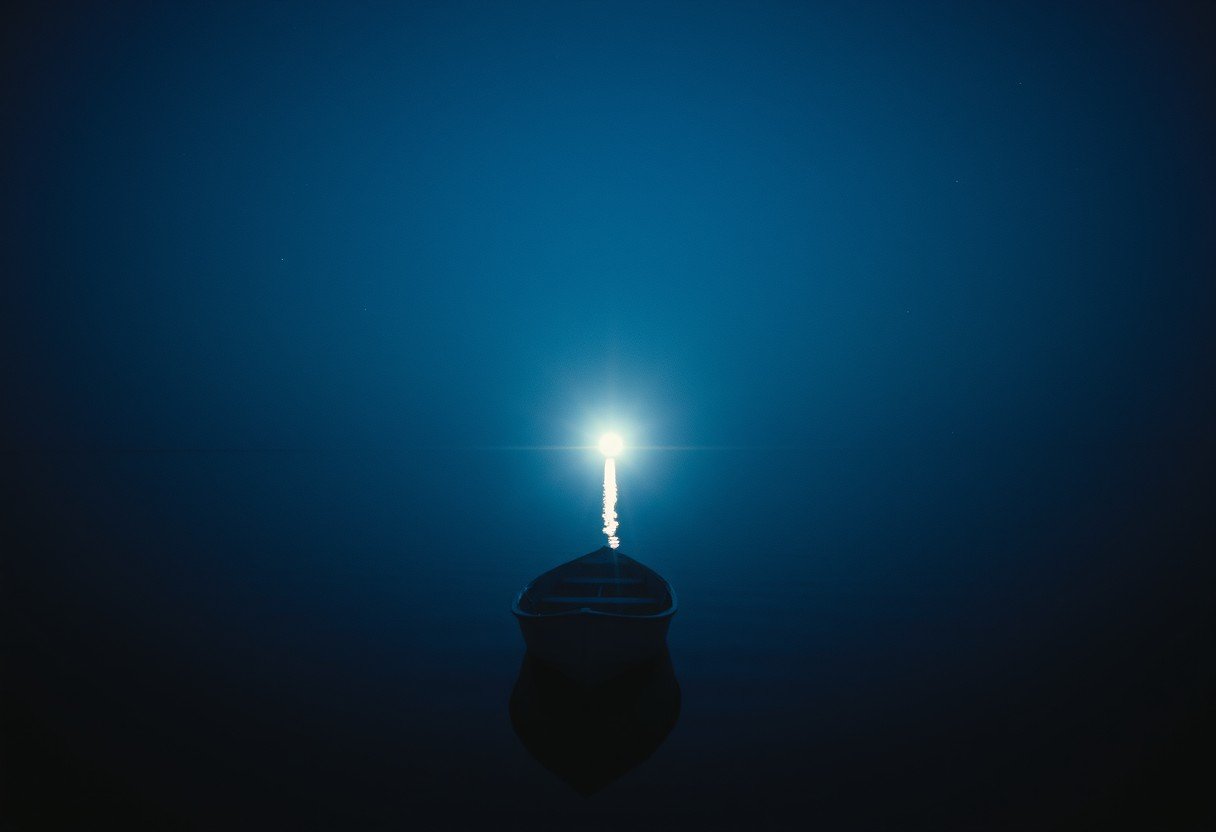The question of whether God fears what humanity has become is a profound one that touches the core of faith, philosophy, and our own existence. It challenges us to look beyond a simple view of an all-powerful creator, asking if the gift of free will came with consequences that even a divine being might find concerning. This exploration isn’t about diminishing God, but about deepening our understanding of the complex relationship between the creator and the created in a world filled with both beauty and chaos.
Understanding the Creator’s Paradox: Love and Free Will
The act of creation is often seen as an expression of divine love. However, the introduction of free will creates a fundamental paradox. By giving humanity the power to choose, the creator also gave it the power to reject, to destroy, and to stray from any intended path.
This isn’t just a simple gift; it’s a release of control. Theologians and philosophers have long debated this divine gamble. Granting free will means accepting that the outcome is no longer guaranteed. This dynamic suggests a relationship built on trust and hope rather than on divine puppetry, but it also opens the door to potential disappointment and concern from the creator’s perspective.
The beauty of human achievement, love, and compassion exists alongside war, hatred, and suffering. This duality is the direct result of free will. Understanding this is key to exploring why a creator might watch over their creation with a sense of apprehension. It’s the tension between the intended potential and the lived reality of humanity.
Can an All-Powerful God Experience Fear?
The idea of an omnipotent God feeling fear seems contradictory. Fear is often linked to a lack of power or control, which shouldn’t apply to an all-powerful being. However, this question invites us to think about “fear” in a different way. It might not be the paralyzing terror a human feels, but rather a profound concern or divine sorrow for the potential of creation to self-destruct.
This concept can actually humanize the divine, making God more relatable. If God can feel a deep concern for the world’s suffering, it suggests a capacity for empathy that resonates with our own experiences. This perspective doesn’t necessarily limit God’s power but instead highlights a deep emotional investment in creation.
Thinking of divine fear in this way changes it from a sign of weakness to a sign of love. It’s the kind of fear a parent feels for a child who is making dangerous choices. It is a fear born from love and attachment, not from a lack of power. This view allows for a more personal and compassionate understanding of God’s relationship with humanity.
The Problem of Evil: Divine Absence or Watchful Silence?
The existence of suffering and evil is perhaps the greatest challenge to the idea of an all-good, all-powerful God. When faced with tragedy, many people feel a sense of divine abandonment, as if God is absent or indifferent. This is where the concept of a watchful, perhaps concerned, presence offers an alternative view.
Instead of seeing suffering as proof of God’s absence, we can see it as a consequence of the free will God granted. From this perspective, God is not absent but is instead a watchful observer, honoring the autonomy given to humanity. This doesn’t solve the pain of suffering, but it reframes it within the context of a world where choices have real and often painful consequences. The silence of God in moments of crisis could be interpreted not as abandonment, but as a painful adherence to the principle of free will.
This tension between feeling abandoned and believing in a watchful presence is a central part of many spiritual journeys. It forces individuals to grapple with the nature of faith when it is not met with direct intervention, pushing them to find meaning and purpose amid life’s greatest challenges.
How Different Religions View a Fearing God
The idea of a divine being experiencing emotions like fear or concern is interpreted differently across various spiritual traditions. These varying perspectives provide a richer context for understanding the relationship between the creator and creation. While some faiths emphasize an untouchable, omnipotent God, others present a more relational and emotive divinity.
Examining these views helps show that the question is not new and has been approached from many angles.
| Religious Tradition | Perspective on Divine Emotion and Fear |
|---|---|
| Abrahamic Faiths (Judaism, Christianity, Islam) | God is often portrayed as omnipotent and beyond human emotion. However, texts also describe God with relational attributes like love, jealousy, and sorrow (e.g., grieving over humanity’s choices), which can be interpreted as a form of divine concern. |
| Eastern Philosophies (Hinduism, Buddhism) | The divine is often seen as a universal force or consciousness (Brahman) or a state of being (Nirvana). Personal emotions like fear are typically viewed as human constructs or obstacles to enlightenment that the divine essence transcends. |
This comparison shows that whether God can “fear” often depends on whether the divine is understood as a personal, relational being or as an impersonal, transcendent force.
Humanity’s Role in the Divine Relationship
The conversation about God’s potential fear of creation inevitably turns the focus back on us. If our actions have the capacity to cause concern for a divine creator, then our responsibility in this cosmic relationship is immense. We are not passive subjects but active participants whose choices shape the world and, in a sense, impact the divine.
This understanding empowers us to see our actions as meaningful. Every choice contributes to the broader narrative of humanity.
- Ethical Decision-Making: Recognizing our impact encourages us to make choices rooted in compassion, justice, and love, aligning our actions with a more harmonious existence.
- Collective Responsibility: We bear a shared responsibility for the state of the world. Our collective actions against injustice, poverty, and environmental destruction are part of fulfilling our role in creation.
- Spiritual Growth: Embracing this responsibility can be a path to deeper spiritual understanding, fostering a more mature and collaborative relationship with the divine.
Ultimately, we are co-creators of our reality. Our duty is to use our free will to steer humanity toward its better potential, creating a world that a loving creator could look upon with pride rather than fear. This shifts the focus from what God does for us to what we can do to honor the gift of creation.
Finding Meaning in Existential Questions and Anxiety
Grappling with questions like whether God fears humanity can be unsettling. It brings up deep-seated anxieties about our purpose, the nature of suffering, and our ultimate vulnerability in a vast universe. However, these existential inquiries are not meant to be paralyzing; they are invitations to seek deeper meaning.
Confronting the idea of a creator’s fear mirrors our own fears about the consequences of our decisions. It highlights a shared vulnerability. Recognizing this can transform anxiety into a catalyst for growth. It pushes us to live more intentionally, to seek connection with others, and to find our place within the grand, unfolding story of existence. By embracing these difficult questions, we embark on a journey of self-discovery and build a more resilient and thoughtful faith.
Frequently Asked Questions about God and Fear
What does it mean to say God fears his creation?
This is a philosophical idea suggesting that a divine creator might feel profound concern or apprehension about the chaotic and destructive potential of humanity, which was granted free will. It frames “fear” as a deep, loving concern rather than a human-like terror.
Is the idea of a fearful God found in religious texts?
While religious texts may not use the word “fear,” many describe God experiencing emotions like grief, disappointment, or anger in response to human actions. These passages suggest a God who is deeply invested in and affected by creation, which aligns with the concept of divine concern.
How does free will relate to God’s potential fear?
Free will is central to this idea. By giving humans the ability to choose, God relinquished absolute control over the outcome of creation. This freedom is what allows for both great goodness and terrible evil, creating a situation where a loving creator might watch with concern over the choices being made.
Can reflecting on this idea strengthen my faith?
Yes, for many, it can. Contemplating a God who understands fear and concern can make the divine feel more relatable and empathetic. It encourages a more mature faith that acknowledges the complexities of life and our own responsibility in the world, fostering a deeper, more meaningful relationship with God.







Leave a Comment